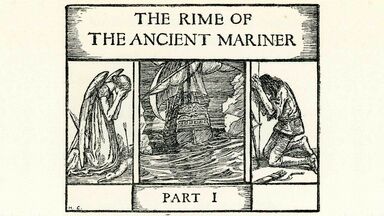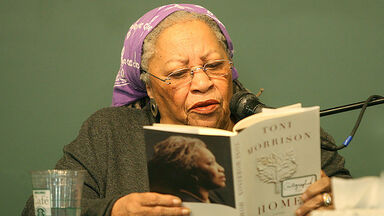The French word, except in such phrases as Dieu merci, sans merci, is principally used in the sense of "thanks," and is seen in the old English expression "gramercy," i.e.
His Belle Dame sans merci was translated into English by Sir Richard Ros about 1640, with an introduction of his own; and Clement Marot and Octavien de Saint-Gelais, writing fifty years after his death, find many fair words for the old poet, their master and predecessor.
You've explained things really well, merci beaucoup!
This was followed by the Debat du reveille-matin, La Belle Dame sans merci, and others.
In the orchestral ballad, La Belle Dame sans Merci, he touches the note of weird pathos, and in the nautical overture Britannia his sense of humour stands revealed.





